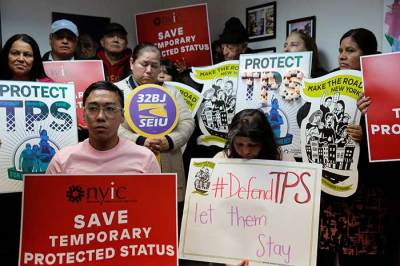5 Facts About Immigration Policy Separating Children From Parents, 1,475 Missing Children
1. Did 1,475 kids go missing?
The 1,475 children are not "missing children," as in lost to their parents or family, and these are not children the U.S. government separated from their families, but the government did lose track of where they are located.
A USA Today op-ed by E.J. Montini titled "The feds lost — yes, lost — 1,475 migrant children" was published Thursday explaining that the Trump administration's "new, get-tough policy that will separate parents from their children if the family is caught crossing the border illegally" overshadowed the news that the federal government lost 1,475 migrant children that had previously been in their custody.
"The Office of Refugee Resettlement reported at the end of 2017 that of the 7,000-plus children placed with sponsored individuals, the agency did not know where 1,475 of them were," Montini wrote, adding that in light of those missing kids Americans ought not trust government's promises to take greater steps to ensure safety.

Montini's was one of several recent articles that generated much public outcry, complete with #WhereAreTheChildren and #MissingChildren hashtags on social media. Some seem to think that the children who were separated from their families at the border were the ones missing.
The Washington Post clarified Sunday that although an official with the Department of Health and Human Services has indeed testified that the federal agency lost track of 1,475 children who had been placed with adult sponsors, these are not the children being separated from their parents. The 1,475 minors in question arrived at the border unaccompanied.
Under the new policy, when a family arrives at the border the children are separated from their families and the adults are criminally charged "even if the adults are seeking asylum and present themselves at official ports of entry."
The Department of Health and Human Services called 7,635 children in late 2017 that they had placed with sponsors. The agency found that 6,075 of the children were still living with their sponsors, 28 had run away, five had been deported, and 52 were living with someone else. The remaining 1,475 had gone missing.





















